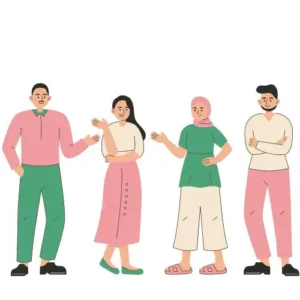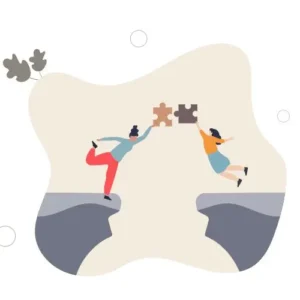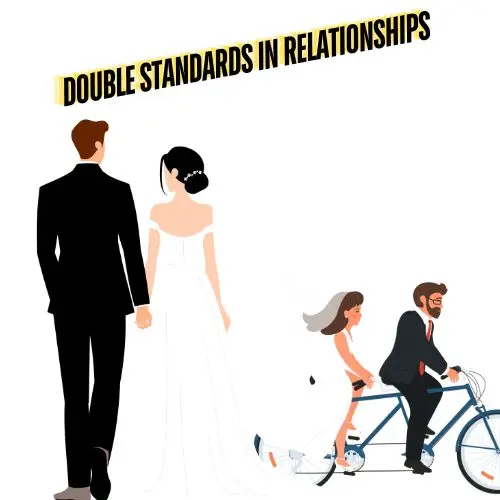Introduction
Relationships are complicated in layers. Even though love, care, trust, and commitment work as a building block for healthy relationships, unrealistic expectations usually produce double standards, which can destroy the relationship further. This paper will explore the existence of double standards in modern relationships, the causes of double standards, and their impact. We also provide helpful insights and practical strategies for the end of double standards in overcoming your potential to nurture relationships where both partners respect one another.
Facts and Statistics about Double Standards in Relationships
- According to a YouGov survey, 56% admit treating their partner worse than themselves.
- According to the Relationships Australia poll, 77% of the male respondents and 65% of the female respondents believe that double standards exist in relationships.
- According to the American Psychological Association, a massive 68% of respondents revealed that double standards affected their relationship.
- According to reports from Psychology Today, sexual double standards exist more in the context of having one’s chores divided within the household (72%), socializing with somebody whom you aren’t dating (63%), and managing one’s money (59%).
- A Pew Research Survey states that people hold more gender-based double standards today than they did in the past but continue to exist: 58% of men and 52% of women agree that they exist.
How do Double Standards Arise?

Double standards arise due to unrealistic expectations that partners often have from each other. Some common causes that fuel double standards include:
- Gender Stereotypes: Often, double standards are built on the old-fashioned stereotypes as to what a man and a woman should do. It is considered that men are allowed more time to socialize at work while women are not.
- Lack of Self-Awareness: A lot of times, the partners don’t recognize their mistakes or just don’t make so much effort to recognize their flaws, thus accepting themselves as different from others.
- The need for control: Some partners have to dominate the other in their relationship by imposing double standards on them and believing they can control their behavior and every action they take.
- Lack of resolution of past relationship experiences: All unsorted issues from previous relationships tend to influence the expectations and perception of the current relationship and skew them in various ways.
- The problem of cognitive biases: The inability to avoid selective attention and confirmation bias makes it easy to notice and memorize more mistakes by a partner compared to the self, thus breeding double standards.
- Lack of communication: It can be a surefire way in which the partners do not know about each other’s shifting needs, perceptions, and boundaries. Assumptions and double standards often erupt in such scenarios.
Impact of Double Standards
Double standards, if unaddressed, can seriously damage a relationship’s health, trust, and equity. Some of the negative impacts include:
- Resentment & Anger: Any form of double standard breeds resentment, anger, and feelings of being controlled in the relationship. No respect or consideration should be shown in such matters.
- Lack of Empathy: Commonly, this is seen because of a lack of empathy, perspective-taking, and consideration of the partner’s feelings and situation. It reduces emotional intimacy.
- Arguments & Conflicts: Double standards evoke arguments and conflicts because pointing out or challenging them forces a partner to be defensive and not admit to their mistakes.
- Invalidation Emotions: The victimized by double standards feels that the other does not validate their opinion, emotions, or situation.
- Erosion of trust: Gradually, double standards tear apart the trust and faith a couple has in each other’s intentions, words, and fairness in the relationship.
- Inequity: It brings along the unequal and unjust distribution of privileges, duties, and treatment within the relationship based on the different rules of each partner.
- Double standards are actually a form of gaslighting, which can indeed be devastating to self-esteem and worth, even causing depression and anxiety.
Strategies to Overcome Double Standards

While double standards take root subtly over time, addressing them consciously can help restore equity and health to a relationship. Some strategies include:
- Self-reflection: The parties concerned need to turn inward to identify their own blind spots and biases, faults, and part in creating or enabling double standards on one’s share.
- Communication: Open, honest, yet compassionate communication regarding perceived double standards brings the issues to the surface. Active listening without a sense of being defensive helps.
- Respects the relationship’s ‘give and take’. Both must be willing to give on some of their standards and compromise so that both lose and win equally rather than see it as ‘giving in’.
- Equity and Fairness: Treat the partner the way you want to be treated by being empathetic, considerate, respectful, and fair in everything done and decided.
- Shared Responsibilities Equally share domestic responsibilities instead of adhering to gender roles. Sharing of tasks encourages one to appreciate and understand what the other bears.
- Feedback and Accountability: Offer constructive feedback and hold each other accountable for maintaining fair standards in the relationship through open self-monitoring.
- For deeply ingrained double standards, counseling works through guided exercises and role-playing new behaviors to gain a different perspective on the dynamics and behaviors causing the problems.
- Personal Growth Along with changing needs in relationships, self-help books, and personal growth practices could address biases and limits; thus, changes in the perspective of presenting a double standard are brought about.
Conclusion
Perhaps not overt, double standards can erode away trust, equity, and welfare in a relationship. Couples can rise above double standards to build an emotionally fulfilling relationship based on respect, care, understanding, and partnership by attending to self, open communication, mutual compromise, and the commitment to fairness. Healthy relationships mean one has to break one’s conveniences and continue to be better, less judgmental, and more compassionate partners.


1 thought on “Unmasking Double Standards in Relationships | Unveiled”